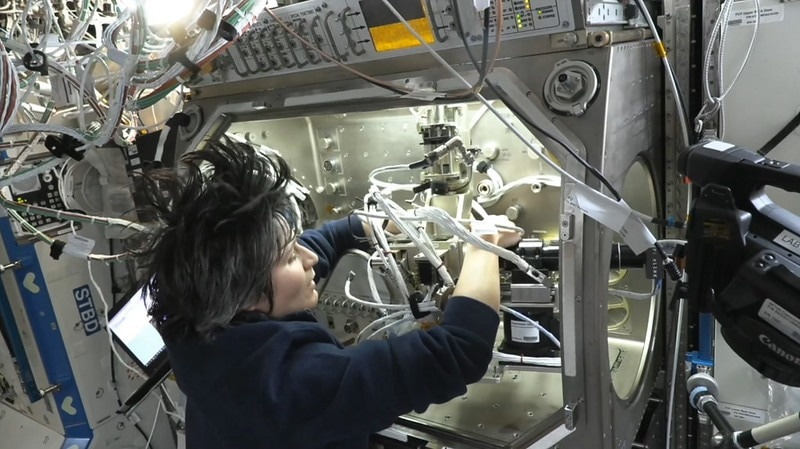How could studying liquid drops of protein solution in space help solve an Achilles’ heel in medicine production on Earth? Find out in the latest issue of Upward, the official magazine of the International Space Station (ISS) National Laboratory.
 ESA astronaut Samantha Cristoforetti installing the Ring Sheared Drop system into the Microgravity Science Glovebox on the ISS. Image courtesy of NASA
ESA astronaut Samantha Cristoforetti installing the Ring Sheared Drop system into the Microgravity Science Glovebox on the ISS. Image courtesy of NASA
Protein-based therapeutics treat and prevent a wide range of conditions, from cancer to HIV, but protein clumping during manufacturing is a problem. Finding a way to avoid or reverse clumping could remove a major roadblock, but studying the complex motion of proteins in solution on Earth is difficult. This is because the proteins interact with the walls of the container holding the solution, which affects their behavior.
In the microgravity environment on the space station, researchers from Arizona State University and Rensselaer Polytechnic Institute did something impossible on Earth—they studied protein solutions without a container. In the absence of gravity, the liquid forms into a floating, self-contained sphere, allowing the team to study protein motion in new ways and create models to better understand the factors that lead to protein clumping.
Learn more about this exciting investigation in the most recent issue of Upward, which is dedicated to communicating the results of space station experiments that demonstrate the value of space-based research and development. Read the article “A Small Drop With a Big Impact” to see how studying spherical drops of liquid protein in microgravity could help lead to valuable improvements in therapeutic manufacturing.